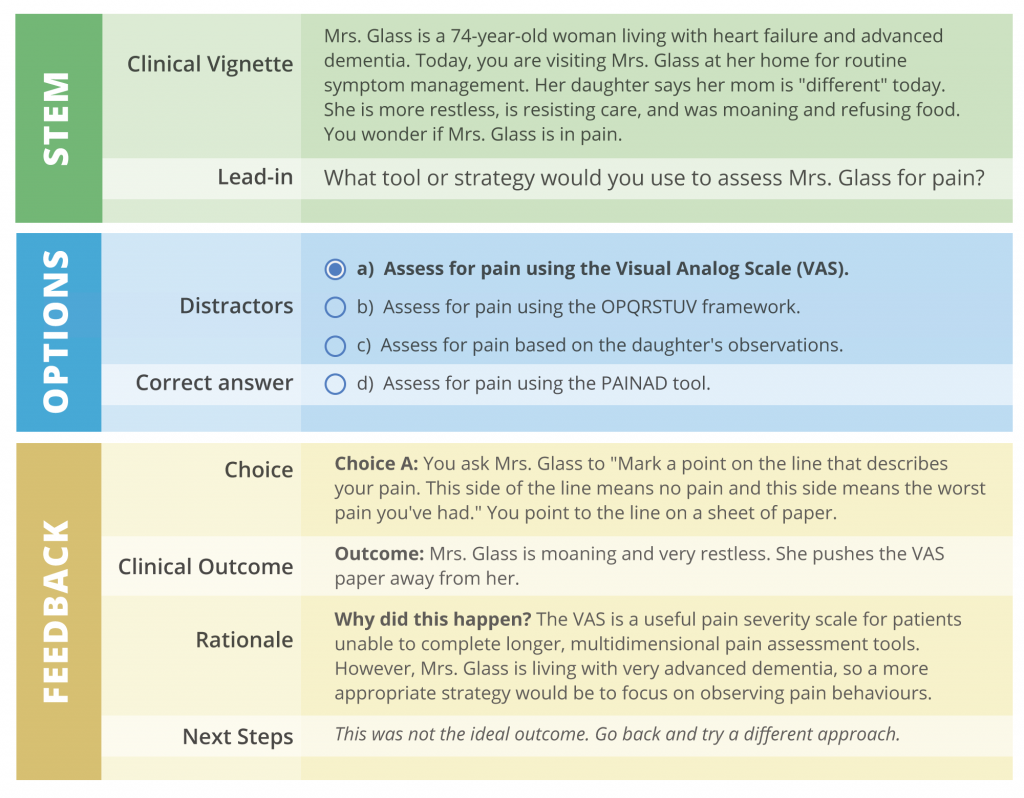Convergence 2021 Clinical Scenarios
Feb. 9, 2021
Designing Meaningful Clinical Scenario Questions for eLearning
Jerusha Ellis, Education Specialist with the de Souza Institute, MScBMC, CMI – jerusha.ellis@desouzainstitute.com
Komal Patel, Nurse Educator/Facilitator with the de Souza Institute, RN(EC), MN, CON(C), CHPCN(C), GNC(C) – komal.patel@desouzainstitute.com
With many in-person workshops moving online, the loss of immediate instructor feedback makes it important to incorporate effectively designed practice activities in eLearning modules. Many eLearning modules include practice questions that ask learners to simply recall facts, while not giving learners the opportunity to practice practical clinical reasoning. Clinical scenario questions are multiple-choice questions that present an authentic clinical task or problem, and then ask the learners to respond in a clinically-realistic way. After choosing their response, learners are provided with immediate and meaningful feedback that is based on the learner’s specific response. With effectively designed feedback, learners are more able to see the consequences of their simulated clinical choices and revise their choices based on the consequences presented.
We’ve written a design guide to help you write effective clinical scenario questions for eLearning practice activities. It includes instructional design tips for designing the stem, options, and feedback. If you’re new to writing this style of practice activity, we’ve also included a step-by-step template to help you get started.
Anatomy of a Clinical Scenario Question

Interactive Examples
Try some examples of clinical scenario practice activities below taken from de Souza Institute’s recently updated Palliative Care course series Interprofessional Education in Palliative and End-of-Life Care (iEPEC). These examples were created using H5P.
Icon citations: Icons are derivatives of “Checklist” , “human brain”, “Stethoscope”, and “Stomach” by Laymik from the Noun Project (https://thenounproject.com), Used under CC BY 3.0 (https://creativecommons.org/licenses/by/3.0/)
